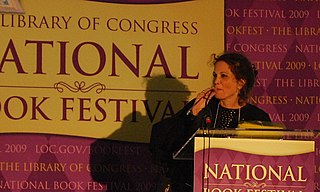A Quote by Jesmyn Ward
I think that the first book that made me think that I could try to be a writer - or that made me aware that a young black woman from the South could write about the South - was Alice Walker's 'The Color Purple,' which I read for the first time when I was in junior high.
Related Quotes
The first book by an African American I read was Carl T. Rowan's memoir, Go South to Sorrow. I found it on the bookshelf at the back of my fifth-grade classroom, an adult book. I can remember the quality of the morning on which I read. It was a sunlit morning in January, a Saturday morning, cold, high, empty. I sat in a rectangle of sunlight, near the grate of the floor heater in the yellow bedroom. And as I read, I became aware of warmth and comfort and optimism. I was made aware of my comfort by the knowledge that others were not, are not, comforted. Carl Rowan at my age was not comforted.
I first read 'Lolita' when I was 16, which I think is a little bit young. But it was a thrilling and disturbing read because it was the first time I really sensed that you could have an unreliable narrator, that you didn't have to sort of tell the truth in a narrative, that there could be something deeper and richer and more complicated going on.
As a young writer, I was on guard against the Latina in me, the Spanish in me because as far as I could see the models that were presented to me did not include my world. In fact, 'I was told by one teacher in college that one could only write poetry in the language in which one first said Mother. That left me out of American literature, for sure.
All good writers inspire me as I have never thought I was any good. As far as a writer who made me think I could do it, it was Henry Miller. Not because I thought he was so simple that I reckoned I could pull it off as well, but it was his freedom and guts that really moved me to want to write all the time.
I think the regime in North Korea is more fragile than people think. The country's economic system remains desperate, and one thing that could happen for example would be under a new government in South Korea, to get the South Korean government to live up to its own constitution, which says any Korean who makes it to South Korea, is a Korean citizen. A citizen of the Republic of Korea. And you could imagine the impact that would have inside North Korea if people thought, "If I could get out and make it to South Korea, I could have a different life."
I read John Irving's novel 'The World According To Garp' when I was about 14 or 15. It was the first grown-up book that I had read. It is the story of a young man who grows up to be a novelist. I finished it, and I wanted to write a book that made the reader feel the way I felt at the end of that, which was sort of both bereft and elated.
I have dear friends in South Carolina, folks who made my life there wonderful and meaningful. Two of my children were born there. South Carolina's governor awarded me the highest award for the arts in the state. I was inducted into the South Carolina Academy of Authors. I have lived and worked among the folks in Sumter, South Carolina, for so many years. South Carolina has been home, and to be honest, it was easier for me to define myself as a South Carolinian than even as an American.






































